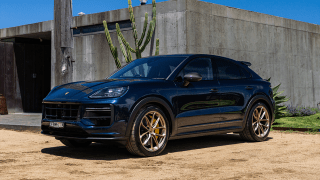
The top five fastest electric cars in the world
- Tesla Model S
- Tesla Model S 2022
- Tesla Sedan Range
- Coupe
- Sedan
- Sport
- Electric Cars
- Tesla Model S Reviews
- Tesla
- Polestar
- EV Advice
- Tesla Advice
- Polestar Advice
- EV
- Prestige & Luxury Cars
- Sports cars
- Electric Cars
- Electric
- EVs
- Green Cars

The fastest electric car in the world is a Japanese hypercar with a colourful name, the Aspark Owl, which smashes the zero to 100km/h dash in an incredible 1.89 seconds. Using top speed as a measure, the Rimac Nevera is the fastest electric car, with a top speed of 412km/h.
If you’re wondering to yourself “What is the fastest electric car in the world?”, it’s worth pointing out that there are two main ways that “fastest” is measured when it comes to cars.
The first is rating a car by how fast it can accelerate from zero to 100km/h; the second is the maximum speed it can reach while being driven.
In regards to what is the fastest electric production car, it’s the Rimac Nevera, with its top speed of 415km/h.
Read more about electric cars
For comparison, the 5.9-litre V8 petrol engine of the SSC Tuatara pushes it to a maximum speed of 474.8 km/h - a feat that was officially achieved in May 2022 - making it the world’s fastest production vehicle.
The petrol-powered car that can get from zero to 100km/h the quickest is the Fahlke Larea GT1 S12 road-legal supercar, which does so in just 2.0 seconds. It can also hit a top speed of 430km/h.


Download the EVGuide Report, 2022
Australia's one-stop snapshot of all things relating to electric cars.
If you’re pondering “Why do electric cars accelerate faster?”, the answer is that electric cars don’t have have gears to shift through, which can cost milliseconds, and they can also achieve instant torque from zero rpm, which lets them accelerate with maximum, and often ferocious, power from a standstill.
In terms of the most powerful electric cars on the planet, which can deliver some uncomfortable g-forces, there are a few electric road rockets worthy of your attention.
Aspark Owl

Price: From $AU4.4 million
The fastest EV in the world in terms of zero to 100km/h acceleration (1.89 seconds), the Aspark Owl is a real head-turner - and for the price, it’d want to be. Powered by a compact 64kWh battery and four electric motors with a mammoth combined output of 1480kW, the Owl also has a top speed of 400km/h. If you want one you’ll need both deep pockets and some speed of your own as only 50 went into production and they are likely to be snapped up fast.
Rimac Nevera

Price: From $AU2.94 million
The EV formerly known as the Rimac C_Two concept officially began deliveries in mid-2022 with the first customer for the much-hyped hyper none other than German-Finnish former Formula 1 driver Nico Rosberg, who has the first of the 150 Neveras that have gone into production (all have already been sold). A 120kWh lithium-manganese-nickel battery produces insane outputs of 1427kW/2360Nm, claimed range is 547km and it can rocket from 0-100km/h in a brisk 1.97 seconds.
Pininfarina Battista
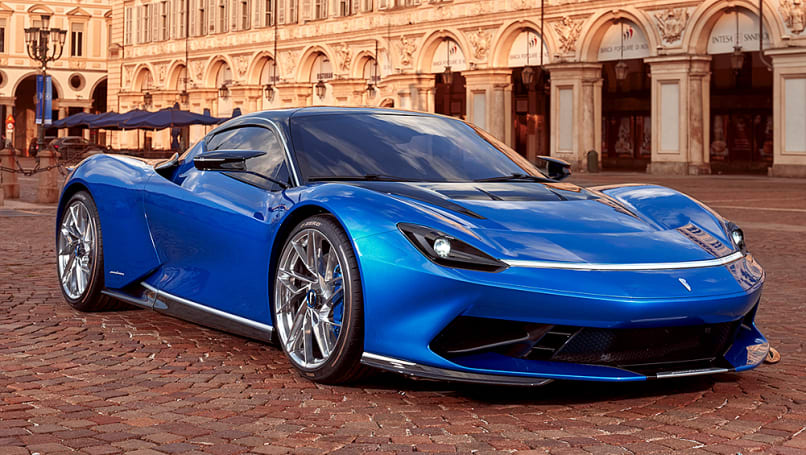
Price: From $AU3.16 million
Manufactured by the German-based, Italian-born Automobili Pininfarina, the Pininfarina Battista has a 120kWh battery pack supplied by Rimac - yep, the same mob behind the Nevera - that gives it the juice to go from 0-100km/h in just under two seconds. Combined power output is 1400kW/2300Nm, claimed range is 450km and the top speed is 350km/h. Just 150 units of the car have been hand-built at the Pininfarina facility located in Cambiano, Italy.
Deus Vayanne

Price: From $AU2.87 million
Austrian start-up Deus has come out of nowhere with the Vayanne hypercar, which, like the Pininfarina Battista, has a somewhat foggy claim to “under two seconds” from zero to 100km/h. What we do know for sure: combined outputs are a beefy 1640kW/2000Nm, top speed is 400km/h and, much like luftballons, there are only 99 of them. The Vayanne will go into production in 2025, so you’ve got yourself a few years to save up for one.
Tesla Model S Plaid

Price: From $AU189,990
Is there an electric passenger car faster than a Tesla in Australia? Now the Model S Plaid has been confirmed to be left-hand drive only, and therefore ruled out for an Australian launch - the answer is yes. That would be the $351,000 Porsche Taycan Turbo S, which goes from 0-100km/h in 2.8 seconds. The Model S Plaid is still faster overseas though, since it shaves that time down to 2.1 seconds. With a staggering top speed of 322km/h and armed with a 760kW electric powertrain, the Model S Plaid is an absolute beast and, Tesla claims, the highest performing sedan ever built, no matter what the motive force. The promised Tesla Roadster, when it (possibly, maybe) arrives in the future, will best the Model S Plaid with zero to 100 km/h in 1.9 seconds and a top speed in excess of 400km/h.
Upcoming fast electric cars
There are, of course, more fast electric cars on the way, including some which may surprise you.
YangWang U9

YangWang is a new ultra aspirational nameplate from BYD, and its second model after the U8 ultra-luxury SUV is the U9 supercar. Using a quad-motor layout, with each unit said to deliver over 200kW/320Nm, the U8 is claimed to sprint to 100km in just two seconds. The price is also unprecedented for a Chinese car, at over a million Yuan (over AU$200,000)!
Polestar 6

The Polestar 6 was a surprise addition to the brand's range after it announced it would build a road-going version of its well-recieved O2 concept in 2022. Due in 2026, the two-door electric sports car might not quite be as fast as some of the certifiably insane machines on this list, with a 0-100km/h sprint time of around 3.2 seconds, but it is probably the only one you'll actually be able to easily buy in Australia. As it is set for mass production, you can also expect it to be more affordable than the other cars here, although the initial 500 pre-order examples dubbed the LA Concept Edition cost in excess of $200,000.







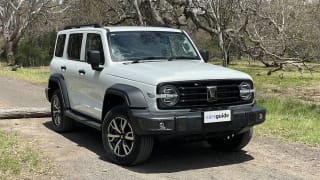
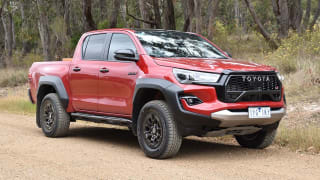
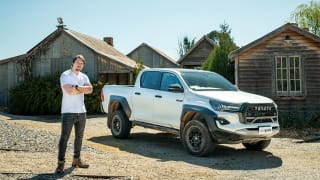
Comments